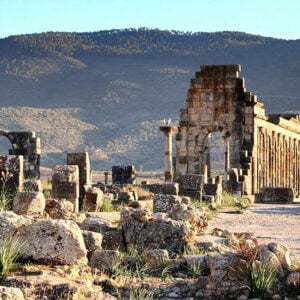Communities across Southern Albania, including Berat, Gjirokastra, Përmet, and Saranda, are experiencing significant economic growth thanks to investments supported by the World Bank. Publicly funded initiatives to preserve heritage sites and improve nearby infrastructure have attracted private sector investment, particularly from entrepreneurs in tourism and hospitality. These efforts have created thousands of new jobs, many filled by individuals traditionally excluded from the labor market, and have encouraged returnees to seize new opportunities in their hometowns.
For years, Southern Albania faced slow growth and youth migration, despite its potential as a tourist destination. Historic towns were quiet and underdeveloped, but municipalities have begun capitalizing on the region’s rich history and natural beauty. UNESCO-recognized heritage cities, ancient fortresses, Ottoman-era architecture, and scenic coastlines are now driving economic revitalization. Through the Integrated Urban and Tourism Development Project (PIUTD), the World Bank and the Government of Albania have restored historic sites, upgraded infrastructure, and expanded tourism services, opening new economic pathways in these communities.
PIUTD focused on restoring twelve key tourist sites and upgrading nearly 200,000m² of public spaces, including streets, plazas, signage, lighting, trails, and visitor amenities. Tourism in Southern Albania is booming, with tourist arrivals surging dramatically—Berat now sees nearly four times as many visitors as in 2019, while Gjirokastra has seen a sixfold increase. This influx has spurred private sector entrepreneurship, with families converting historic homes into bed-and-breakfasts, offering culinary and cultural experiences, and investing in adventure tourism infrastructure such as hiking trails, e-buses, boats, and upcoming ziplines. Since 2019, tourism-associated businesses in the project area have more than doubled.
The economic revival is extending the tourism season year-round, diversifying income sources, and turning restored heritage sites into vibrant economic hubs. The job market has benefitted greatly, particularly in hospitality, tourism, and transportation, with over half of the new positions held by women, youth, and persons with disabilities. This inclusive growth is also reversing population decline, attracting former residents back to invest and contribute to local development. Returnees like Kristi Magllara in Saranda and Hajdar Ceribashi in Gjirokastra are reinvesting in family businesses, bringing fresh ideas, and strengthening the local economy.
At its core, PIUTD demonstrates how cultural preservation can coexist with sustainable economic growth. By restoring landmarks, improving infrastructure, promoting eco-tourism, and building local capacity, the project ensures long-term development. Southern Albania’s experience highlights how heritage tourism, empowered communities, and international support can generate jobs, stimulate private investment, and catalyze economic transformation, showing that investing in the past can secure a prosperous future.







